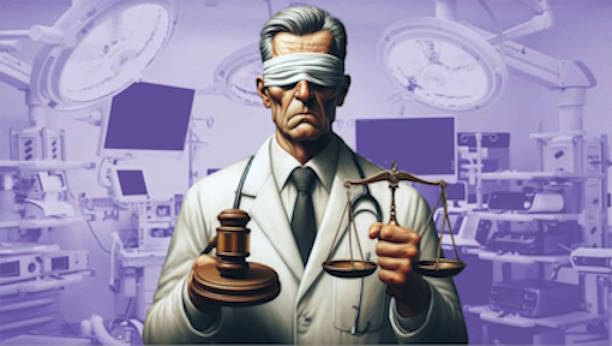
DON’T BE FOOLED: THE MEDICAL-INDUSTRIAL COMPLEX WIELDS A LOT OF POWER IN IDAHO
Suppose a random person were to undergo surgery at one of St. Luke’s hospitals, and the doctors botched the operation. The most he could hope to recover in the form of noneconomic damages is less than a million dollars, per the statute that the medical-industrial complex got passed into law just over two decades ago.
The same laws and the same system that St. Luke’s and its ilk bought and paid for is what cost Ammon Bundy $50 million for a protest against the hospital for its part in taking a healthy baby from his parents in 2022. And the Ammon-haters might say, “Well, Ammon got what he deserved.” Ammon didn’t show up at his own trial or offer any kind of defense. But remember: what is demonstrated here is the ability of law to protect or hurt. The law protects St. Luke’s from costly lawsuits. Damages are capped by law. The amount of money the hospital can recover from Ammon, or from any one of us, is unlimited by law.
The point is, the medical-industrial complex, working with groups like the Idaho Association of Commerce and Industry’s Prosperity Fund, gets sympathetic legislators elected and then writes laws that favor them. This favoring comes in the form of protection from lawsuits, a steady stream of taxpayer money for programs to train doctors, healthcare funds over many years from county, state, and federal treasuries, and sales and property tax exemptions.
So, when the Idaho Hospital Association (IHA) writes, as it did recently, that “you will pay the price” if the Legislature monkeys with hospital tax exemptions in the 2024 legislative session, consider the source.
The IHA and its allies have been fleecing taxpayers for decades, often in ways completely imperceivable to most people. The hospital property tax exemption is a great example. The law allows county commissions to review nonprofit tax exempt statues to make sure they’re legit and not just a convenient tax dodge. This is important because when one taxpayer is afforded a property tax exemption, the cost of the exemption gets shifted to other taxpayers.
Hospitals, however, are legally exempt from scrutiny when it comes to their nonprofit statuses. Their special treatment is because hospital lobbyists got the state law written in the late 1990s in such a way as to shield them from questions about the hospital’s actual charitable activities.
For example, the county might question how the CEO of a nonprofit hospital made $1.2 million a year or why it spent more than $300,000 on lobbying. But it can’t, even though those would be valid questions of other nonprofits in the state.
This is just another example of the kind of massive influence that the medical industrial complex holds over Idaho’s politics. Idaho’s hospitals might like to claim they’re just innocent little nonprofits doing their part to provide health care to the communities of the state. But they’re actually part of a big and powerful industry that controls vast portions of Idaho’s political system, as demonstrated by the statutes they’re able to pass, the money they’re able to collect, and the taxes they’re able to dodge via the politicians that they control.
Wayne Hoffman is president of Idaho Freedom Foundation.
From idahofreedom.org